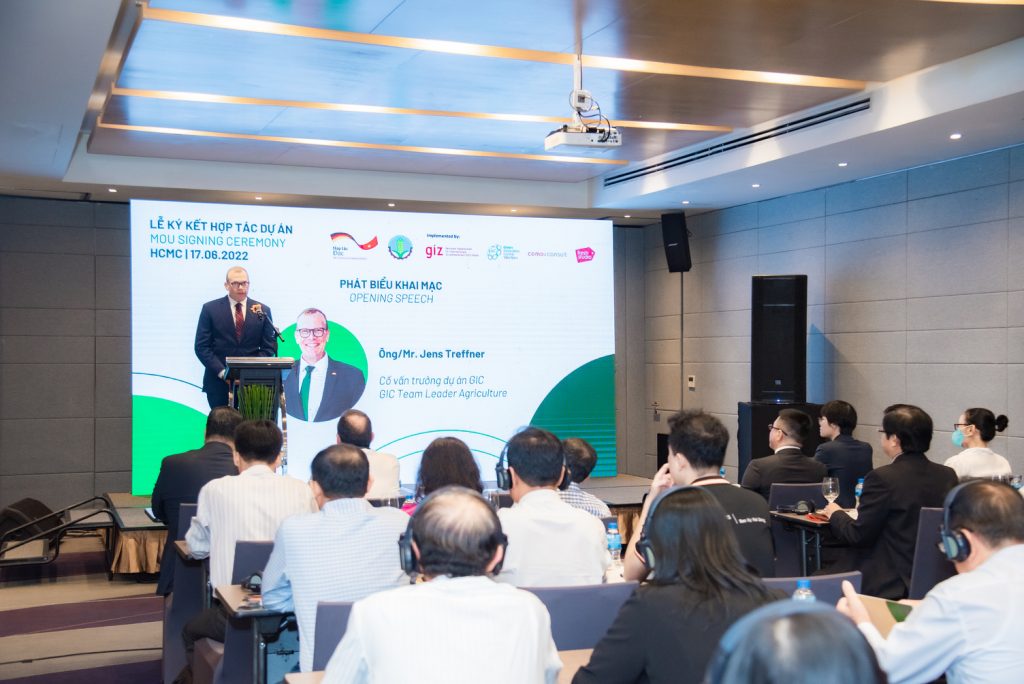The “Strengthening the Mango value chain in the Mekong Delta” project aims to enable stakeholders throughout the value chain to successfully implement identified innovations to enhance their business in terms of sustainability, climate chain resilience and profitability.
Agricultural production in the Mekong Delta in Vietnam is of great national and global importance for current and future food security as well as rural income. It is threatened by the consequences of climate change and the unsustainable use of water and agrochemicals. The smallholders of the Mekong Delta region are not yet able to access existing and developing innovations to ensure their business and income are secure. There even more difficulties in ensuring their production methods are environmentally sustainable. Limited access to innovation limits sustainable rural development and improved food quality and security.
The Vietnam country package is a part of their global project “Green Innovation Centre (GIC) in the Agricultural and Food Sector” of the Federal Ministry for Economic Cooperation and Development (BMZ) special initiative “ONE WORLD without Hunger”. It is carried out in six central provinces of the Mekong Delta: An Giang, Dong Thap, Can Tho, Tien Giang, Hau Giang and Soc Trang. The main project objective is to provide rice and mango smallholders with access to sustainable innovations to increase income, employment and food quality. The “Strengthening the Mango value chain in the Mekong Delta” project is implemented under the Vietnam country package.
Vietnam produces about 800,000 tons of fresh mango annually, of which about 500,000 tons are produced in the Mekong Delta, this accounts for 45% of the national share of mango orchards. This puts Vietnam in fourteenth place globally in terms of volume of mango production. The majority of mango produced is consumed on the domestic market. 170,000 tons of mango are exported, of which, 94% is unbranded and traded
across the Chinese border. The remaining share is exported to medium-high value markets in the Middle East, Russia, Asia-Pacific, and North America.
A more efficient, environmentally friendly and internationally competitive agricultural sector is required to improve exportation of mango products from Vietnam. Global and domestic demand for mango and other tropical fruits has increased due to a change in consumer diets and an increase in disposable income. Consumers are willing to pay premium prices for high quality fruits. This allows for the potential for uptake of innovation to improve the mango value chain and boost exports of fresh and value-added
products.






